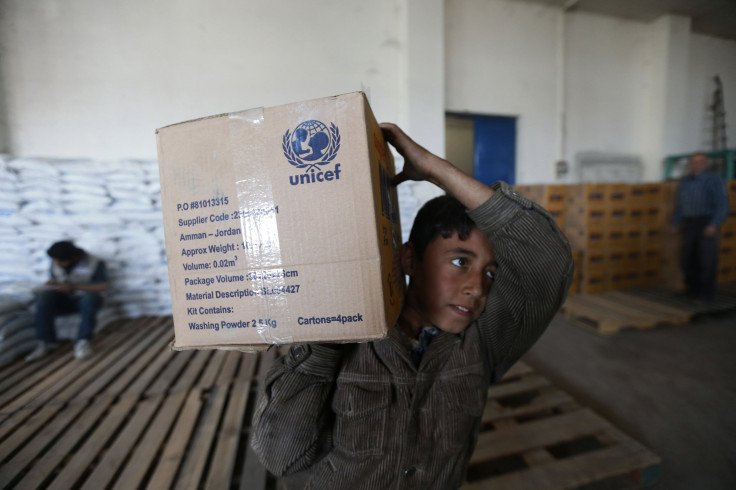UNICEF Takes On 'Largest Emergency Supply Operation' Ever In August

The United Nations Children’s Fund, or UNICEF, has so far shipped nearly 1,000 metric tons of aid in August to children in the conflict-hit regions of Gaza, South Sudan and Iraq, as well as in the Ebola-affected countries of West Africa. The combined effort makes it the largest emergency supply operation in a single month in the organization’s history.
“UNICEF’s massive deployment responds to a massive need in many different countries at the same time,” Shanelle Hall, UNICEF’s director of supply and logistics operations, said in a statement released by the organization Tuesday. “Now it is vital to keep humanitarian corridors open so these supplies continue to reach the children who desperately need them."
Since the beginning of the month, UNICEF has dispatched 33 shipments, which would "fill 19 cargo jumbo jets," containing medical supplies, vaccines, food and clean water, the statement said.
Iraq, which has witnessed a drastic increase in the number of displaced families and children since the rise of the Islamic State, formerly known as Islamic State of Iraq and Syria, or ISIS, in the northwest, was the single largest recipient of humanitarian aid from UNICEF. Nearly 500 tons of emergency food rations and medical supplies, including four million polio vaccines, were delivered to Iraq in August.
The Ebola-struck countries of Liberia, Sierra Leone, Guinea and Nigeria were reportedly provided with a range of essential medicines and disinfectants. Meanwhile, South Sudan and Gaza, which have been reeling under a protracted and violent conflict, were supplied with vaccines, as well as food to ward off the risk of malnutrition.
“During multiple crises of this magnitude children must come first,” Hall said, adding that UNICEF “will continue to undertake these urgent, complex and vast supply operations.”
© Copyright IBTimes 2024. All rights reserved.






















